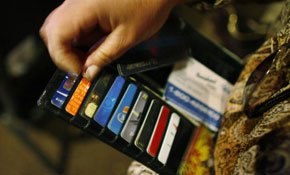New figures from YouGov/Cebr suggest the UK’s consumer confidence is undergoing a subtle rebalancing as people become more optimistic over their domestic finances.
Over the past year a rapid rise in economic optimism has been largely driven by hopes for the property market. However, figures for February show economic optimism is finally starting to be driven by improving expectations of household finances.
YouGov/Cebr Consumer Confidence Index
The YouGov/Cebr Consumer Confidence Index increased by +0.5 points in February and now stands at 110.7 - its highest level since September 2007 – the month Northern Rock sought financial support from the Bank of England. This is the first substantial movement in the Index since October 2013 and it now stands +15.0 points up on its position this time last year.
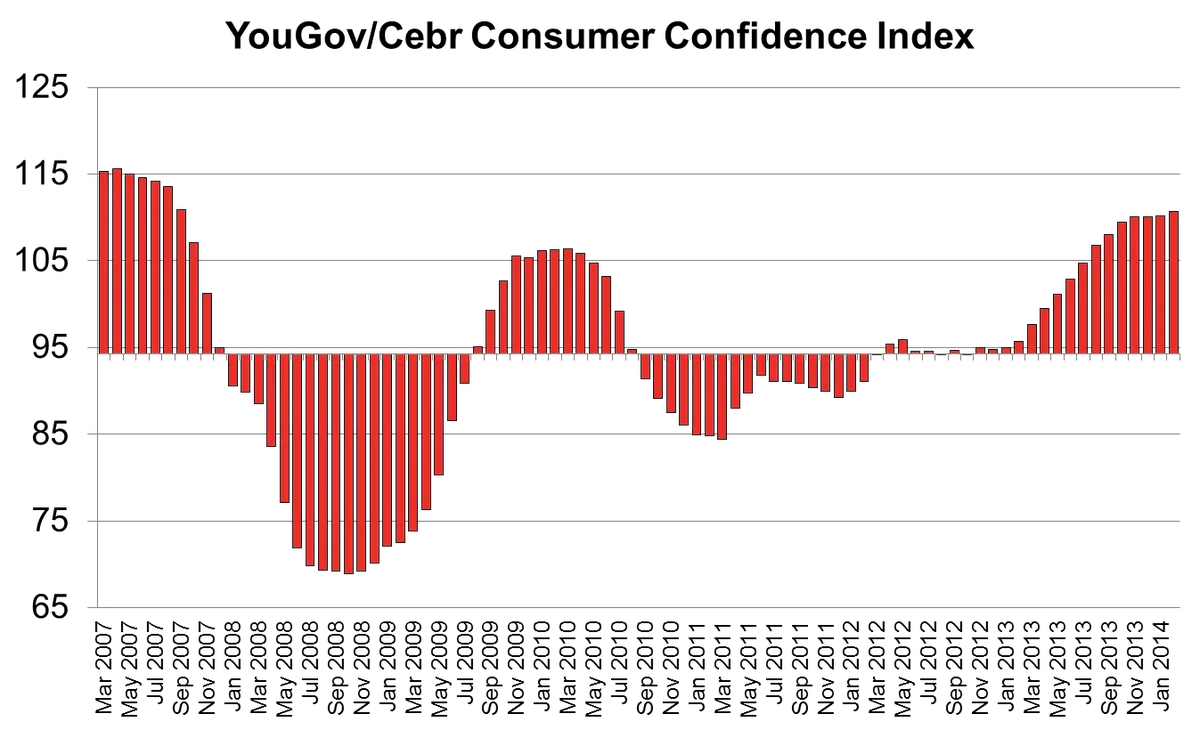
Source: YouGov/Cebr HEAT data, February 2014, using a three-month rolling average.
Notes: Axis value of 94.3 represents the average HEAT Consumer Confidence measure since the data set began in 2007.
Household finances finally showing signs of improvement
YouGov’s data suggest that the increase in consumer confidence is starting to be driven by an improvement in people’s expectations for their household finances over the next year. One fifth (20.5%) now expect their household finances to improve over the next 12 months. This is the highest figure since September 2010, just before the Spending Review.
This month’s figure is +1.7 percentage points higher than February 2013 and a +3.4 percentage point improvement on the February 2012 level. However, despite highlighting the ongoing rebalancing in the make-up of the UK’s improving consumer confidence, the current position is well below the position of March 2010. Then, 27.7% of people expected their household financial situation to improve over the following 12 months.
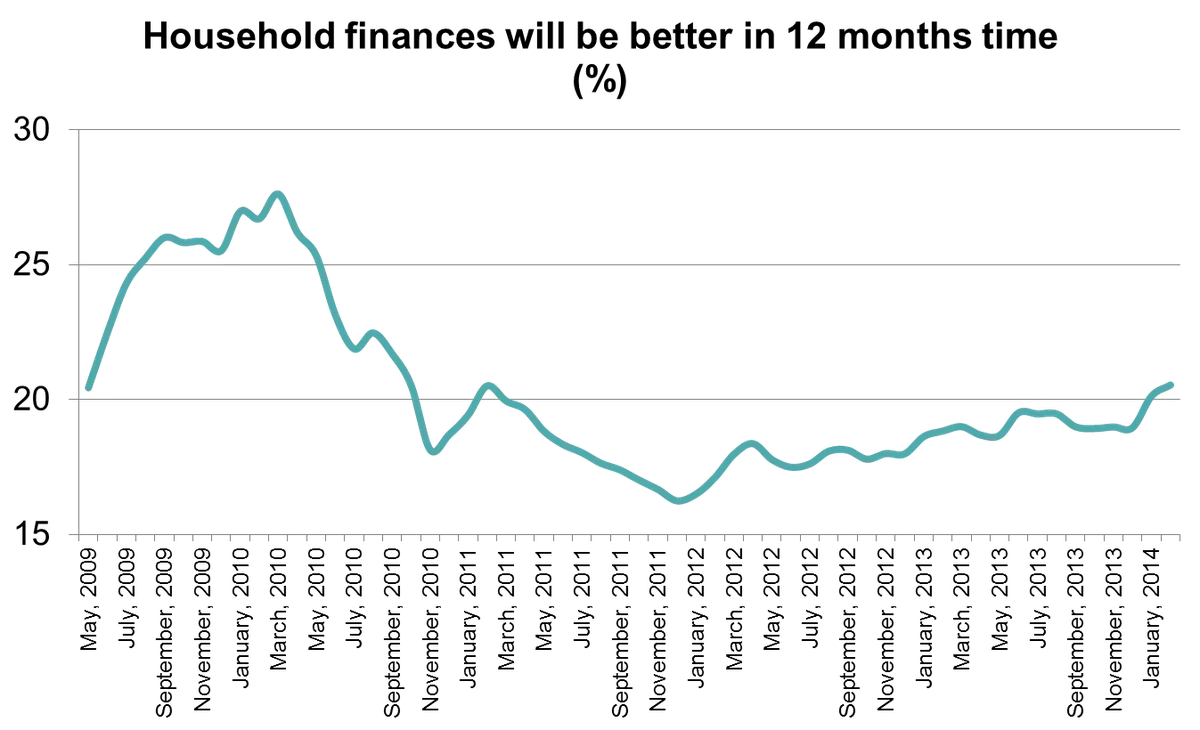
Source: YouGov/Cebr HEAT data, February 2014, using a three-month rolling average.
Cash available for spending
The data also show that household finances are being bolstered by an increase in the number of consumers who believe they will have more cash to spend over the next 12 months. A net balance of -18.0% of consumers believe they will have an increased amount of available cash in a year’s time. This represents a notable improvement over the past three months. In November a net balance of -21.7% thought they would have more cash available for spending in 12 months’ time.
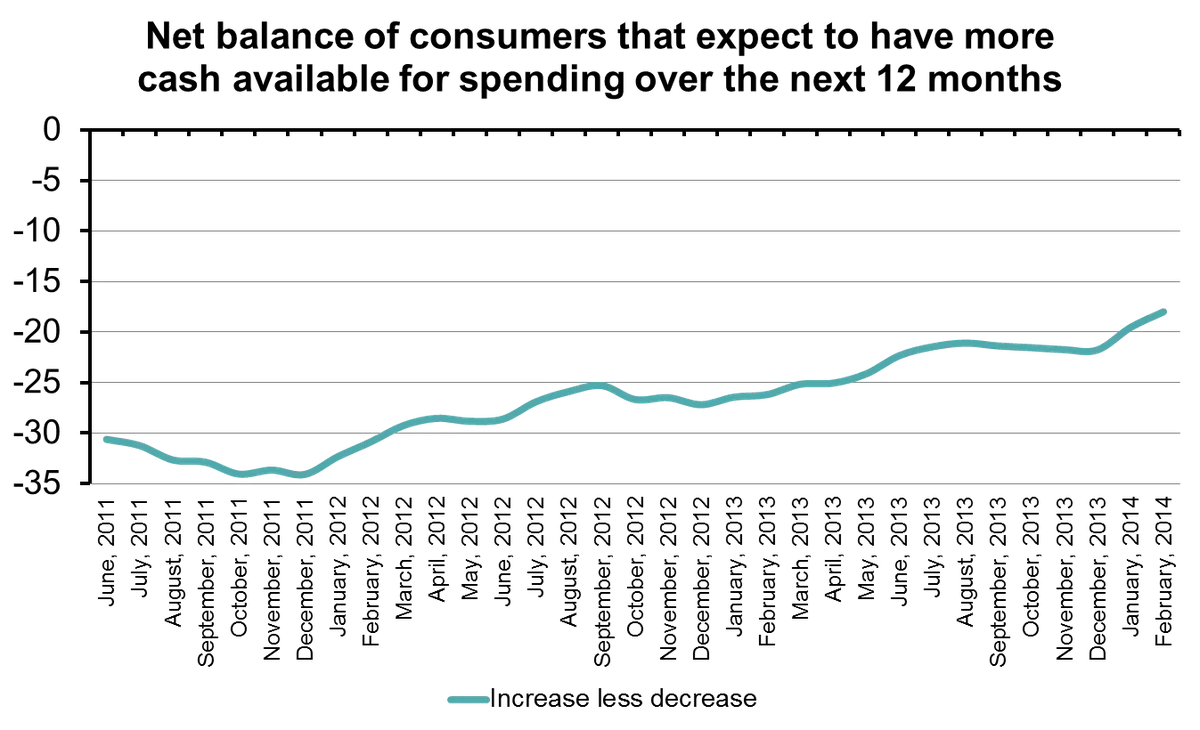
Source: YouGov/Cebr HEAT data, February 2014, using a three-month rolling average
Property values
There has been a flattening out of people’s expectations for their property values to rise over the next 12 months. Currently, home owners expect their properties to increase in value by 2.3% over the next 12 months, the same expected annual increase that YouGov measured in January. These figures still represent the two highest values since we started measuring this area in 2009, but the static numbers suggest a slight cooling off in the feverish expectations we have seen over the past year. In February 2013, home owners on average predicted their properties to increase in value by just 0.1% over the following 12 months.
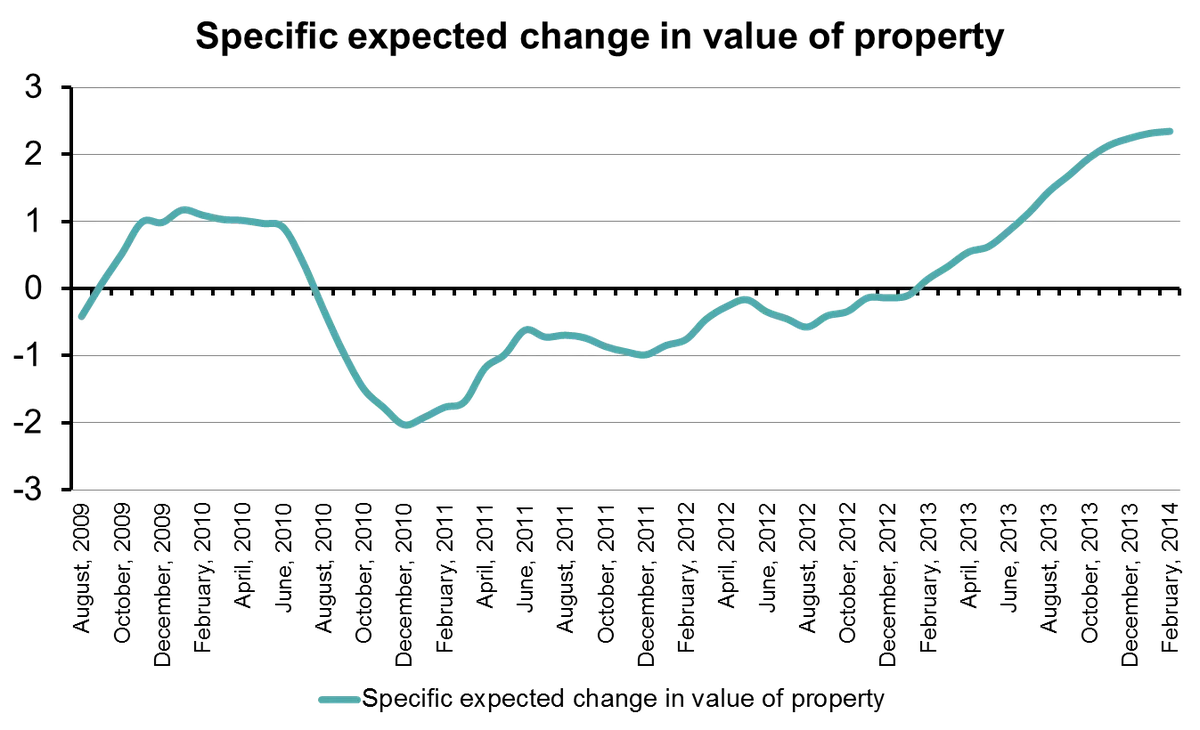
Source: YouGov/Cebr HEAT data, February 2014, using a three-month rolling average.
Stephen Harmston, Head of Syndicated Research at YouGov: ‘People’s improving expectations for their household finances since the start of the year suggests that the recovery is finally starting to be felt in consumers’ pockets. That increasing numbers also think they will have more cash available for spending is a good indicator that consumers might finally be in a position to start opening up their wallets again.
‘However, the figures contain a note of caution. Despite improving expectations for household finances, particularly in London and the South East, more people still expect their situations to get worse than think they will get better. Similarly, although the numbers are getting better, higher numbers of people still think they will have less cash available for spending than think they will have more. While the movement in the past two months is encouraging we have some way to go before the majority feel that their household finances are back in the black.’
Scott Corfe, Managing Economist at the Centre for Economics and Business Research: ‘While the headline consumer confidence index remains steady within this we are starting to see signs of rebalancing. The jump in consumer confidence over the last year very much had its origins in a resurgent housing market while households reported only modest improvements in their actual financial situation.
‘However, in early 2014 we are seeing signs of improvement in consumer finances. Of course, this is helped by inflation having fallen back beneath the Bank of England’s 2.0% central target and the gap between pay growth and rises in the cost of living continuing to narrow. If this trend continues, we should see the recovery becoming more sustainable as households move towards real income gains which can in turn support increased consumer expenditure. But there is still a way to go on this, and of course the threat of an interest rate rise within the next year or so would potentially take the wind out of consumer sails.’
